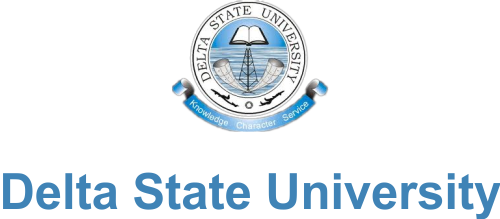15 Tips for Passing WAEC with Flying Colors as a Nigerian Student
West African Examination Council (WAEC) is one of the most prestigious exams in Nigeria and West Africa as a whole.
In Nigeria, WAEC is like a stepping stone to entering the university.
After you write you write your WAEC, you will then proceed to write JAMB, also known as Joint Admission and Matriculation Board.
After writing your JAMB, you can then apply for any university of your choice.
And in most cases, the university you applied for may require you to write POST UTME examinations before you can be considered for admission.
However, some Nigerian students find it difficult to pass WAEC.
Some Nigerian students could spend 4-5 years writing WAEC due to constant failure of the examination.
I could remember the time I wrote my WAEC examination.
A day before the first day of the examination, I was feeling all happy and pumped up.
But on getting to the exam hall on D-day, everything changed.
I started feeling nervous and it seemed as if I didn’t prepare well.
My feets started shaking and I began feeling feverish. It was a hell of an experience for me that day.
But on the second and subsequent days of the examination, I felt a lot better.
And luckily for me, when the results came out, I saw that I passed all the 9 subjects I wrote and I was so happy.
So in this article, I want to share with you 15 tips for passing WAEC with flying colors as a Nigerian student.
Ready? Let’s dive in!
Also Read: 20 Tips on How to Pass WAEC in One Sitting as a Nigerian Student
15 Tips for Passing WAEC with Flying Colors as a Nigerian Student
Here are 15 tips for passing WAEC with flying colors as a Nigerian student:
1. Start Early

Starting early is an essential strategy for Nigerian students aiming to pass the West African Examination Council (WAEC) with flying colors.
By beginning the preparation process well in advance, you can set yourself up for success.
One advantage of starting early is the opportunity to cover the entire syllabus thoroughly.
The WAEC syllabus is extensive, and giving yourself enough time to study each subject and topic ensures that you have a solid understanding of the material.
It allows you to avoid rushing through the syllabus and provides ample time to delve into each subject, grasp the concepts, and practice related questions.
Starting early also allows for effective revision.
After going through the syllabus, revisiting the topics is crucial to reinforce your understanding and enhance retention.
By starting early, you can dedicate sufficient time for comprehensive revision, ensuring that you are well-prepared and confident in your knowledge.
Regular revision helps you identify areas that require more attention and seek clarification on difficult concepts, strengthening your overall grasp of the subjects.
2. Understand the Syllabus

Familiarizing yourself with WAEC syllabus helps you focus your efforts and ensures that you cover all the necessary topics.
By understanding the syllabus, you gain clarity on the scope of each subject and the specific areas that will be assessed in the exam.
This knowledge enables you to prioritize your study time and allocate it effectively across different subjects and topics.
You can identify the weightage given to each section, allowing you to devote more attention to areas that carry greater importance.
Moreover, understanding the syllabus helps you plan your study schedule efficiently.
With a clear overview of the topics to be covered, you can create a realistic timetable that allows for adequate time to study and revise each subject.
This ensures that you have enough time to delve into the intricacies of each topic, understand the underlying concepts, and practice related questions.
3. Create a Study Schedule

A well-structured study schedule helps you stay organized, manage your time effectively, and ensure comprehensive coverage of all WAEC subjects.
Firstly, a study schedule allows you to allocate dedicated time to each subject based on its importance and your proficiency.
By giving equal attention to all subjects, you can avoid neglecting any particular area.
Additionally, it helps you prioritize your study time based on the weightage given to each subject in the exam, ensuring that you focus on areas that carry more marks or require greater understanding.
Lastly, a study schedule promotes discipline and consistency.
By setting specific study hours for each day, you develop a routine that helps you stay on track and prevents procrastination.
Consistency is key to building a strong foundation of knowledge and retaining information effectively.
Recommended: 12 Tips on How to Prepare for WAEC in One Month as a Nigerian Student
4. Set Goals
Clearly defined goals provide direction, motivation, and a sense of purpose throughout the WAEC exam preparation process.
Firstly, setting goals helps you stay focused and organized.
By identifying specific targets, such as achieving a certain grade or mastering specific topics, you create a roadmap for your study journey.
These goals serve as a compass, guiding your efforts and keeping you on track.
They prevent you from getting overwhelmed by the vast syllabus and help you break it down into manageable tasks.
Furthermore, goals provide motivation and drive.
When you have clear objectives in mind, you are more likely to stay committed to your studies and put in the necessary effort.
Goals act as a source of inspiration, reminding you of the rewards that await you upon achieving them.
They instill a sense of purpose and determination, pushing you to work harder and persevere through challenges.
Lastly, setting goals also helps you measure progress and evaluate your performance.
As you study and revise, you can regularly assess your understanding and skill development in relation to your goals.
This allows you to identify areas that need improvement and make necessary adjustments to your study strategies.
By regularly tracking your progress, you can stay accountable and make the necessary adjustments to stay on track.
5. Organize Study Materials
A well-organized collection of study materials helps create a conducive learning environment, enhances efficiency, and facilitates effective WAEC exam preparation.
Firstly, organizing study materials ensures easy access to resources.
Gather all the textbooks, notes, past question papers, and other relevant materials for each subject in one place.
Create separate folders or binders for each subject to keep the materials organized and easily retrievable.
This saves valuable study time that would otherwise be spent searching for scattered or misplaced resources.
Secondly, a well-organized study material collection promotes effective revision.
When your materials are arranged systematically, you can easily review specific topics or chapters as needed.
This allows for targeted revision, focusing on areas that require more attention or areas where you feel less confident.
Quick and efficient access to study materials enables you to reinforce your understanding and consolidate your knowledge.
Lastly, organizing study materials helps in identifying gaps in your resources.
It allows you to assess if you have all the necessary textbooks, notes, and reference materials for each subject.
If any materials are missing, you can take timely action to acquire them, ensuring that you have a comprehensive set of resources to support your learning and exam preparation.
6. Practice Past Questions
Engaging in past question practice offers numerous benefits that contribute to a better understanding of the WAEC exam format, improved time management, and increased confidence.
Firstly, practicing past questions familiarizes you with the WAEC exam format and structure.
By solving previous years’ questions, you gain insight into the types of questions asked, the distribution of marks, and the time allocation for each section.
This knowledge allows you to align your study approach accordingly, focusing on the areas that carry more weight and preparing for the specific question styles and formats.
Secondly, practicing past questions helps you identify recurring patterns and themes.
Over the years, certain topics and concepts tend to reappear in WAEC exams.
By solving past questions, you can spot these patterns and prioritize studying those areas more extensively.
This targeted approach saves you time and ensures that you cover the topics most likely to be tested.
Lastly, practicing past questions enhances your time management skills.
The WAEC exams have strict time limits, and practicing past questions helps you become familiar with the pace required to complete the exam within the given timeframe.
By timing yourself while solving past questions, you can improve your speed, allocate appropriate time to each section, and avoid getting stuck on any particular question.
Also See: 28 Tips on How to Score A1 in WAEC as a Nigerian Student
7. Seek Clarification
Actively seeking clarification when faced with challenging topics or concepts can greatly enhance understanding, improve knowledge retention, and ultimately lead to better performance in the WAEC exams.
One of the most effective ways to seek clarification is by engaging with teachers or subject matter experts.
If you encounter difficulties or have questions while studying, don’t hesitate to approach your teachers for assistance.
They possess the expertise and knowledge to explain complex topics in a way that is understandable and tailored to your needs.
Take advantage of their guidance and ask specific questions to address any confusion or gaps in your understanding.
In addition to seeking help from teachers, forming study groups with classmates can also be beneficial.
Collaborating with peers who share similar goals allows for discussion and the exchange of ideas.
Explaining concepts to others or having them explain them to you can deepen understanding and provide alternative perspectives.
This collective effort can enhance comprehension and reinforce learning.
Lastly, online resources such as educational websites like newschoolweb, forums, and tutorial videos can be valuable sources of clarification.
Utilize these platforms to access additional explanations, examples, and practice materials.
Online communities and forums often provide opportunities to interact with other students or subject experts who can help clarify any confusion.
8. Form Study Groups
Study groups provide a collaborative and supportive learning environment that can enhance understanding, foster critical thinking, and improve overall academic performance.
One of the key advantages of study groups is the opportunity for peer learning.
When you engage with classmates who share the same goal, you can exchange ideas, discuss challenging topics, and clarify doubts collectively.
Each member brings unique perspectives and insights, which can deepen your understanding of the subject matter.
Explaining concepts to others and engaging in discussions can also reinforce your own knowledge and help solidify your understanding of the material.
Study groups facilitate active learning.
They encourage active participation, engagement, and information sharing among group members.
This active involvement promotes deeper understanding and retention of the material compared to passive studying.
Members can challenge each other with questions, engage in problem-solving activities, and engage in group discussions that stimulate critical thinking and analysis.
Lastly, study groups provide a support system.
They offer emotional support, motivation, and encouragement during the WAEC exam preparation journey.
When faced with challenges or difficulties, you can rely on your study group to provide assistance, share resources, and offer guidance.
The collective effort and shared experiences can boost morale, alleviate stress, and keep you motivated throughout the study process.
9. Take Breaks
While it may seem counterintuitive, regular breaks during study sessions can actually enhance focus, productivity, and overall well-being.
Firstly, taking breaks helps prevent burnout.
Extended periods of intense studying without breaks can lead to mental and physical exhaustion, diminishing the effectiveness of your study sessions.
By incorporating short breaks into your study routine, you allow your mind and body to rest and recharge.
This rejuvenation improves your ability to concentrate and retain information when you resume studying.
Moreover, breaks promote better focus and concentration.
Our attention span naturally diminishes over time, making it harder to maintain optimal concentration for prolonged periods.
Short breaks provide an opportunity to reset and refresh your mind.
When you return to studying after a break, you are more likely to be attentive, alert, and able to absorb information more effectively.
Lastly, breaks improve long-term memory retention.
Studies have shown that taking breaks between study sessions enhances the consolidation of learned information in memory.
It allows time for your brain to process and solidify the knowledge you have acquired.
By spacing out your study sessions with breaks, you optimize your ability to recall and apply the information during the WAEC exams.
Recommended: 10 Steps for Writing WAEC Informal Letter
10. Improve Time Management
Effective time management allows for efficient study sessions, thorough syllabus coverage, and reduced stress levels.
Firstly, creating a study schedule and setting specific study goals helps prioritize tasks and allocate time accordingly.
Break down the syllabus into manageable chunks and assign time slots for each subject or topic.
This structured approach ensures that you devote sufficient time to each area, preventing last-minute cramming and ensuring comprehensive preparation.
Furthermore, practicing discipline and adhering to the study schedule is key.
Avoid procrastination and distractions by setting specific study hours and sticking to them.
Eliminate or minimize distractions such as social media, phone notifications, and television during study periods.
By maintaining focus and utilizing time effectively, you can maximize productivity and make the most of your study sessions.
Lastly, utilizing time management techniques such as the Pomodoro Technique can enhance productivity.
This technique involves studying in focused bursts of 25 minutes, followed by a short break.
By working in short, dedicated intervals, you can maintain concentration and prevent mental fatigue.
The structured breaks also provide opportunities for rest and rejuvenation.
11. Revise Regularly
Engaging in consistent and structured revision sessions allows for better retention of information, improved understanding, and increased confidence in the WAEC exam preparation.
Firstly, regular revision helps reinforce knowledge and concepts.
As you review previously studied material, you strengthen your understanding and solidify the information in your memory.
Regular revision sessions serve as a reminder of key points, ensuring that important facts and concepts are not forgotten over time.
By revisiting topics multiple times, you develop a deeper understanding and are better equipped to apply your knowledge during the WAEC exams.
Furthermore, regular revision enables you to identify areas that require further attention.
Through continuous review, you can assess your level of understanding and identify any gaps in your knowledge.
This allows you to focus your efforts on specific topics or concepts that may be more challenging or require additional clarification.
By addressing these areas in a timely manner, you can enhance your overall understanding and improve your performance in the WAEC exams.
Lastly, regular revision helps in managing exam anxiety and building confidence.
When you are well-prepared and familiar with the content, you feel more confident in your abilities.
Regular revision allows you to approach the exams with a sense of readiness and reduces stress levels.
As a result, you can perform better under exam conditions and showcase your knowledge with confidence.
12. Practice Writing
Developing strong writing skills is essential for performing well in subjects such as English Language, Literature-in-English, and even in essay-based questions in other subjects.
Firstly, practicing writing helps improve clarity and coherence in expressing ideas.
Through regular writing exercises, you develop the ability to articulate your thoughts effectively and present them in a logical and organized manner.
This skill is crucial for constructing well-structured essays and responses that are coherent and easy to understand.
Furthermore, practicing writing enhances critical thinking skills.
When you engage in writing, you are required to analyze and evaluate information, form arguments, and support them with evidence.
This process of critical thinking strengthens your ability to analyze questions, identify key points, and construct well-reasoned responses, which are important skills for success in various subjects.
Lastly, practicing writing allows for the development of language proficiency and vocabulary.
Writing regularly helps expand your vocabulary as you search for appropriate words and phrases to express your ideas.
It also improves grammar, punctuation, and sentence structure.
Strong language skills are vital for effective communication and for achieving higher marks in subjects such as English Language and Literature-in-English.
Also See: What Causes Failure in WAEC in Nigeria? (Top 20 Reasons)
13. Seek Professional Help if Needed
Professional assistance can provide valuable guidance, support, and resources to enhance your understanding and performance in various subjects.
Firstly, seeking professional help allows you to access expertise and specialized knowledge.
If you find certain topics or subjects particularly challenging, reaching out to subject matter experts, private tutors, or teachers can provide you with personalized guidance.
These professionals have in-depth knowledge and experience in their respective fields and can offer additional explanations, clarifications, and strategies to help you overcome difficulties and improve your understanding.
Furthermore, seeking professional help can provide you with access to additional study materials and resources.
Professional tutors or educational institutions often have curated study materials, practice exams, and supplementary resources that can supplement your existing study materials.
These resources can offer different perspectives, additional examples, and practice opportunities, enabling you to further strengthen your knowledge and skills.
Lastly, seeking professional help promotes accountability and discipline.
Working with a tutor or attending specialized classes creates a structured learning environment and a sense of responsibility to stay committed to your studies.
The guidance and support of professionals can help you stay motivated, track your progress, and ensure that you are on the right path to success.
14. Stay Healthy
Good physical and mental health plays a vital role in maintaining focus, managing stress, and optimizing academic performance.
Firstly, maintaining a healthy lifestyle supports cognitive function and enhances concentration.
Regular exercise, a balanced diet, and adequate sleep promote overall well-being and improve brain function.
Engaging in physical activity increases blood flow to the brain, leading to better concentration, memory, and cognitive abilities.
Eating nutritious meals provides essential nutrients that fuel brain function and support optimal cognitive performance.
Sufficient sleep ensures mental alertness, enhances memory consolidation, and allows for better information processing during studying and exams.
Furthermore, managing stress is crucial for success in the WAEC exams.
High levels of stress can hinder concentration, impair memory, and lead to burnout.
Engaging in stress management techniques such as relaxation exercises, deep breathing, and mindfulness can help alleviate stress and promote a calm and focused mindset.
Taking breaks, engaging in hobbies, and maintaining a healthy work-life balance are also important for managing stress and maintaining overall well-being.
Lastly, prioritizing mental health is essential.
The WAEC exam period can be challenging and emotionally demanding.
It is important to recognize the signs of stress, anxiety, and overwhelm and seek support when needed.
Talking to trusted friends, family, or counselors can provide emotional support and help develop effective coping mechanisms.
Taking care of your mental health ensures that you approach the WAEC exams with a clear and focused mind.
15. Stay Positive and Confident
A positive mindset and self-belief can significantly impact your motivation, resilience, and overall performance during the WAEC exams.
Firstly, maintaining a positive outlook helps you approach challenges with a solution-oriented mindset.
Instead of viewing obstacles as insurmountable barriers, a positive mindset enables you to see them as opportunities for growth and learning.
Embracing a positive attitude allows you to tackle difficult subjects or topics with determination and perseverance, enhancing your ability to understand and excel in them.
Furthermore, confidence is key to performing at your best.
Believing in your abilities and having confidence in your preparation allows you to approach the WAEC exams with a sense of self-assurance.
When you have confidence, you are more likely to trust your knowledge, make informed decisions, and showcase your skills effectively.
Confidence also helps to manage exam-related anxiety and nerves, allowing you to perform at your optimal level.
Lastly, a positive and confident mindset enhances your overall well-being during the WAEC exam period.
It reduces stress levels, promotes better mental and emotional health, and fosters a productive study environment.
Positive thoughts and self-affirmations can counteract negative self-talk and self-doubt, boosting your motivation, focus, and overall sense of well-being.
Also See: How Can I Prepare for University in Nigeria?
Frequently Asked Questions (FAQ)
Is WAEC a Hard Exam?
The difficulty of the WAEC exam can vary depending on individual perspectives and preparation.
WAEC is known for its comprehensive syllabus and rigorous assessment standards.
It covers a wide range of subjects, requiring students to have a solid understanding of various topics.
The exam tests critical thinking, problem-solving, and analytical skills.
Proper study and consistent effort are essential to perform well.
While some find WAEC challenging due to its breadth and depth, others may perceive it as manageable with diligent preparation.
What are the Selected Topics in WAEC?
The selected topics in WAEC vary depending on the subject being assessed.
WAEC covers a wide range of subjects including Mathematics, English Language, Sciences (Physics, Chemistry, Biology), Social Sciences (History, Geography, Economics), Languages (French, Spanish), and many more.
Each subject has a specific syllabus that outlines the topics to be studied and assessed in the exam.
These topics are designed to evaluate students’ knowledge, understanding, and application of concepts and principles in their respective subjects.
It is important for students to be familiar with the syllabus and focus on the specified topics to excel in the WAEC exams.
What Causes Failure in WAEC?
Are you wondering what causes failure in WAEC?
Well, there can be various factors that contribute to failure in WAEC.
Inadequate preparation, lack of proper study materials, poor time management, and ineffective exam strategies are common causes.
Insufficient understanding of the subject matter, careless mistakes, and anxiety can also hinder performance.
Additionally, external factors like personal issues, distractions, or health problems can impact focus and concentration during the WAEC exam.
It is crucial for students to address these factors by developing effective study habits, seeking help when needed, and maintaining a balanced approach to academics and personal well-being.
Do WAEC Results Expire?
No, WAEC results do not expire!
Once a candidate has successfully completed the WAEC exam and obtained their results, those results remain valid indefinitely.
They can be used for various purposes such as college admissions, job applications, or further education opportunities.
However, it’s worth noting that while the results themselves do not expire, some institutions or organizations may have specific time limits or requirements regarding the acceptability of older results.
It is advisable to check with the specific institution or organization for their policies regarding the validity of WAEC results.
How Are WAEC Exams Marked?
WAEC exams are marked using a standardized grading system.
Each subject has its own marking scheme and criteria, which are developed by experienced examiners.
The exam papers are marked by trained and qualified teachers who follow the provided marking guidelines.
Marks are awarded for correct answers, while deductions may be made for incorrect or incomplete responses.
The marking process involves carefully assessing the candidate’s knowledge, understanding, and application of the subject-specific concepts.
After marking, the scores are collated, moderated, and finalized to determine the final results for each candidate.
Recommended: How to Make Friends in a Nigerian University as a Fresher
Video Section
Conclusion
While WAEC can be hard and challenging, with careful preparation, you can write the exams and pass all the subjects with flying colors.
If you want to pass WAEC, you have to take deliberate intentional steps toward your academics to ensure that you do well in the exams.
If you’ve not been reading, this is the time to start reading.
You have to let go of Tiktok and other social media platforms that take your time and focus solely on your studies.
With the tips I have shared with you in this article, you have all it takes to pass WAEC with flying colors.
If you have any questions or inquiries, kindly drop them in the comment section and I will address them instantly.
Best of luck!
Related Posts:
- How Can I Be Popular in Nigerian University?
- Top 20 Countries Most Nigerians Go for Studies
- 20 Benefits of Studying Abroad as a Nigerian
- Top 20 Easiest Courses to Study in Nigeria
- Top 10 Hardest Courses to Study in Nigeria
- 12 Male Student Room Decoration Ideas in Nigeria
- 9 Female Student Room Decoration Ideas in Nigeria
- How to Decorate Your Room as a Nigerian Student
- How Many Hours a Day Should I Study as a Nigerian Student?
- What Is the Best Age to Enter University in Nigeria?






